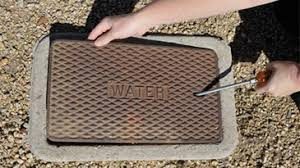
Shawnee city leaders have agreed to seek a loan from the Oklahoma Water Resources Board to replace the city’s system with automated water meters.
As the Shawnee News Star recently reported, the city commissioners unanimously voted to file a loan application. A representative of an engineering firm told commissioners the new meter system would be more accurate and better for quickly locating water leaks.
The new system would also result in a manpower reduction because meter readers would no longer be needed.
The system is designed so each meter can share data with a handful of towers that would then send the data to the city.
Meters would last as long as the batteries sealed inside, according to the engineering consultant — typically about 15 to 20 years.
Without knowing exactly how many meters Shawnee has to replace, the estimated cost could be between $5 million and $8 million to update the system throughout the city.
A new monthly meter maintenance fee ($6 for residents and a tiered fee for commercial, based on meter size) imposed this week will serve as a fundraising effort to offset the cost of upgrading the city’s meter system, Assistant City Manager Chance Allison said.
“This fee will allow us to roll out an advanced meter-reading infrastructure,” he said. “We would be able to read meters from City Hall.”
Interim City Manager Eric Benson said when he was city manager in Enid 12 years ago that community went through installation.
“Just the recouping of lost water that was going through homes but not being registered amounted to about 26 percent,” he said. “We added 26 percent to Enid’s water consumption payments because they could account for (the water more efficiently).”
He said that enabled full payoff of the system within three and a half years instead of the seven originally intended.
“Additionally, the city was able to lay the backbone of IT infrastructure that allowed a free internet service through all of the downtown area,” he said, “in fact all of the areas that were served by a group of meters exceeding a set amount, because of the traffic required to send that data.”
Some cities do that for free, while others choose to charge for that, he said.
“You currently don’t have that capability in town — unless you want to use your cellular data, which you have to pay for,” he said.
The opportunity is a tremendous asset, Benson said.
He said he believes there are enough vertical structures in town. Benson said he made an unofficial tabulation of the necessary transmission nodes to build the system.
“This is a tremendous improvement from what you currently have,” he said. “It’s what your citizens deserve to have.”
Alan Brooks said many communities choose financing the upgrade through the Clean Water State Revolving Fund (CWSRF) program.
“It’s the same program that we’ve talked about relative to the wastewater management system improvements,” he said.
The low-interest loan, Brooks said, given 15-year financing, would have a rate of about two and a half percent.





